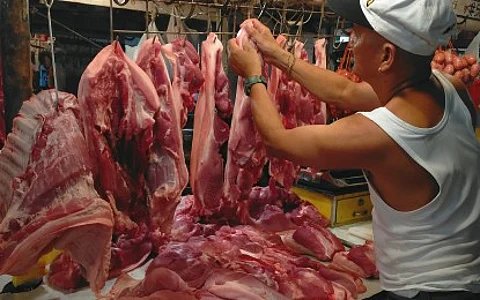
- NEWS
- the EDIT
- COMMENTARY
- BUSINESS
- LIFE
- SHOW
- ACTION
- GLOBAL GOALS
- SNAPS
- DYARYO TIRADA
- MORE

Department of Agriculture (DA) monitoring efforts to ensure compliance with the Maximum Suggested Retail Price (MSRP) on pork have been ramped up, following reports that some retailers continue to sell pork at more than P400 per kilo — well above the suggested range of P350 to P380.
In a radio interview, Eric Harina, president of the Pork Producers Federation of the Philippines, said the DA implemented the MSRP to curb the rising retail price of pork.
“The DA pushed for the MSRP to lower the retail price of pork because we were seeing that the price of pork had risen to more than P400-P440 per kilo, which is too high,” Harina explained.
To stabilize prices, pork producers agreed to lower the farmgate price from P250-P260 per kilo to P230. However, despite this effort, some retailers continued to sell beyond the recommended price cap.
“There are sellers offering pork for more than P400, when the price should only be between P350 to P380 per kilo,” Harina said.
Harina revealed that the DA recently called a special meeting to assess the supply chain and identify those who are not adhering to the pricing regulation.
While pork producers have agreed to the MSRP, Harina stressed the need for a minimum retail price to ensure that farmers do not suffer losses.
“If there is a maximum suggested retail price, there should also be a minimum retail price to ensure that farmers don’t lose out. Otherwise, farmers will be discouraged and may no longer want to raise pigs because it would be a loss,” he explained.
The local pork industry has been struggling due to the impact of the African swine fever, which reduced the country’s pig population by nearly 50 percent from its previous 14-15 million head.
“We need to encourage more people to raise pigs so that we can have a greater supply,” Harina said, noting that pork production remains insufficient despite ongoing importation efforts.
According to DA spokesperson Arnel de Mesa, compliance with the pork MSRP has improved, increasing from 25 percent to 31 percent since enforcement began on 10 March.
